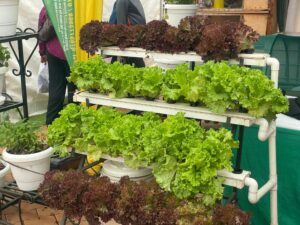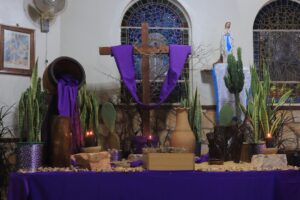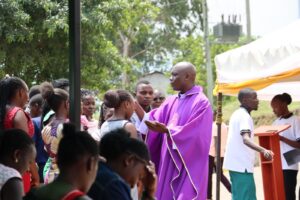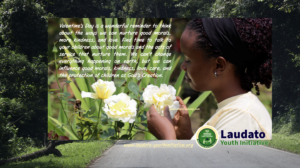I have had the privilege of studying Ecology and leading groups of high school students in exploring the profound connection between Nature and God. Through this exploration, I have had an opportunity to delve into Pope Francis’ encyclical Laudato Si’ and its message of Integral Ecology.
He emphasizes the need to involve everyone’s talent and gifts to achieve integral ecology. He further challenges us to move beyond mere scientific, technological, political, and economic considerations and engage in dialogue with all people about our common home. For him this dialogue must extend beyond surface-level changes like reducing pollution and shifting to renewable energy. It must encompass a deeper understanding of our interconnectedness
This reminds me of St. Francis of Assisi’s Canticle of creatures. In which he invites all his brother and sister creatures—whether minerals, plants or animals—to praise their Creator. From Biology experience I can say we are all profits and gains for each other. For example, living things that cannot make their own food must eat other organisms for food and the cycle continues.
With this understanding the encyclical prompts us to reflect on the purpose of our existence and the goals of our actions. It actually reminds me of the inseparable link between environmental and human ecology, highlighting that harm to the environment is ultimately harm to humanity. Pope Francis warns against the dangers of a culture of waste that disregards the poor in society.
Now Integral Ecology, as outlined in Laudato Si’, calls for an integrated approach to combating poverty, restoring human dignity, and protecting nature. It challenges us to reject self-centeredness and embrace a spirit of sacrifice, generosity, and sharing. It urges us to re-sensitize our consciences to hear the cries of the earth and the cries of the poor, urging us to move beyond superficial solutions and embrace a deeper, a more profound Ecological Spirituality.

As young people, we have the power to catalyze change and lead the way towards an Ecological Conversion. By listening more carefully to the wisdom of God and adopting an attitude of gratitude and generosity, we can work towards a more sustainable and harmonious relationship with our Mother Earth and all its inhabitants.
Laudato Si’ for me serves as a guidepost for us as we navigate the complexities of environmental and social issues, reminding us of our responsibility to care for our common home and all who dwell within it. Be it through our studies and discussions, we strive to embody the principles of Integral Ecology and foster a deeper connection between nature, humanity, and the divine, a value I have found so pronounced at Holy Cross College – ND Indiana.
Friends let me end with this quote from Pope Francis. He says many of the Societal problems come from our “self-centered culture of instant gratification” (LS 162) condemning the “I” and encouraging the “We” and if we think deeper about it, we shall think about the future generation in all our undertakings and take on small actions like going green activities, buying less, eating healthy food from our gardens etc.
Zabuna Nicholet – Biology Major Student; Holy Cross College – ND Indiana














